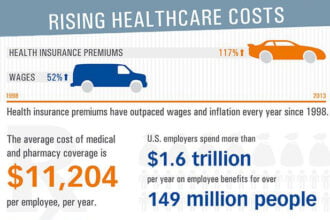 This year marks the country’s worse West Nile virus outbreak since 1999. The CDC is now reporting over 1,993 nationwide across 38 states, including 87 deaths.
This year marks the country’s worse West Nile virus outbreak since 1999. The CDC is now reporting over 1,993 nationwide across 38 states, including 87 deaths.
 This year marks the country’s worse West Nile virus outbreak since 1999. The CDC is now reporting over 1,993 nationwide across 38 states, including 87 deaths.
This year marks the country’s worse West Nile virus outbreak since 1999. The CDC is now reporting over 1,993 nationwide across 38 states, including 87 deaths.
Although West Nile can infect any one of any age, the most serious cases of West Nile appear in the older population. Seniors age 65 and over are at particularly high risk for developing severe symptoms and complications as a result of infection.
West Nile Symptoms
The West Nile virus is a mosquito-transmitted disease that can infect humans, birds, horses and other mammals. Most individuals who are infected with WNV do not show symptoms or experience mild illness. Three to fourteen days after a bite, an infected older adult may experience headache, high fever, body aches, nausea, neck stiffness, confusion, and muscle weakness.
However, in some cases – particularly among the elderly— severe neurological disease can develop. Severe illness may include encephalitis (inflammation of the brain), meningitis (inflammation of the membrane around the brain and spinal cord), and acute flaccid paralysis (a polio-like syndrome in which muscles become very weak or paralyzed). At its most severe, West Nile can cause permanent brain and spinal tissue damage as well as death.
Who is at risk?
The role of chronic conditions in West Nile virus infection is increasingly being explored, particularly following recent cases where West Nile deaths were linked to underlying health conditions.
The CDC has identified certain chronic conditions that raise your risk of becoming infected:
- Cancer
- Diabetes
- High blood pressure
- Kidney disease
How do I keep my elderly loved one protected from West Nile?
Since West Nile infection is greatest among those age 65 and over, caregivers and baby boomers should take special precautions to prevent mosquito exposure. Take the following measures June through October, when mosquitos are most active:
- Cover your skin when outdoors. Wear long pants, long-sleeved shirts, and socks.
- If possible, limit outdoor activity between dusk and dawn when mosquitoes are most active
- Avoid shaded, bushy areas where mosquitoes rest.
- Check the screens on your home’s windows and doors. Replace any screens with rips, tears, or holes that would allow mosquitos to sneak in.
 Use an insect repellent containing DEET when spending time outdoors. This is a highly effective way to reduce your chance of being bitten by an infected mosquito. Upon returning inside, wash with soap and water to remove DEET from skin. Make sure to read and follow label directions when using repellents.
Use an insect repellent containing DEET when spending time outdoors. This is a highly effective way to reduce your chance of being bitten by an infected mosquito. Upon returning inside, wash with soap and water to remove DEET from skin. Make sure to read and follow label directions when using repellents.- Eliminate all standing water from around your home or property to reduce mosquito breeding. Mosquitoes lay eggs in standing or slow moving water. Remove sites where standing water may accumulate such as in pools, pool covers, bird feeders, planters, pet dishes, unused tires, and cans.


 Use an insect repellent containing
Use an insect repellent containing 




